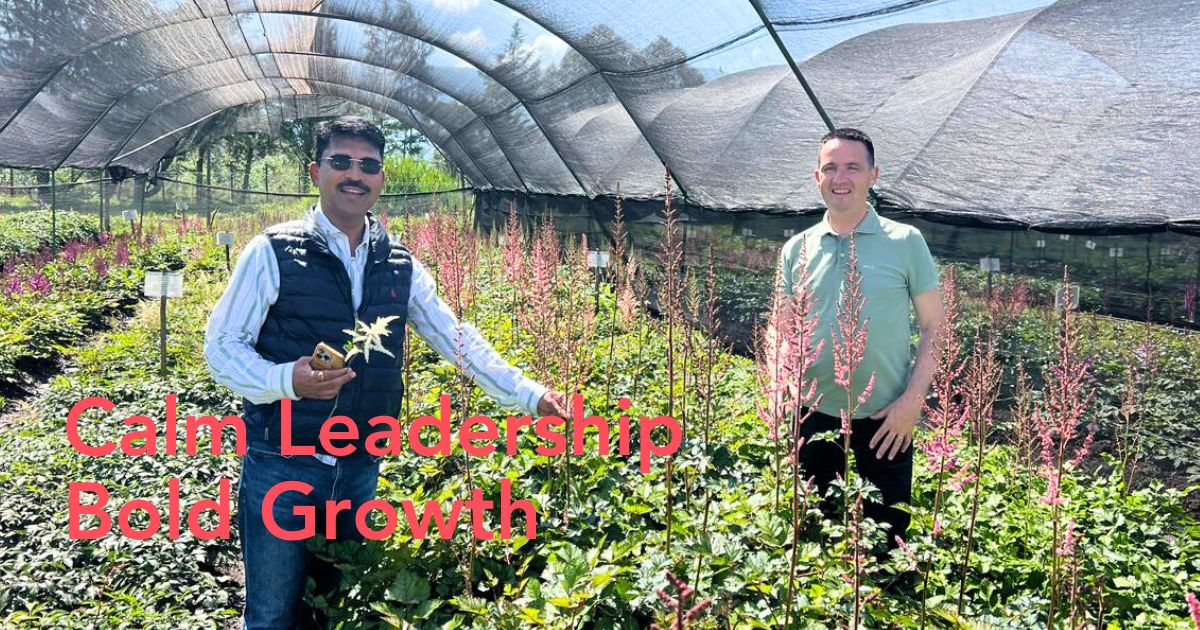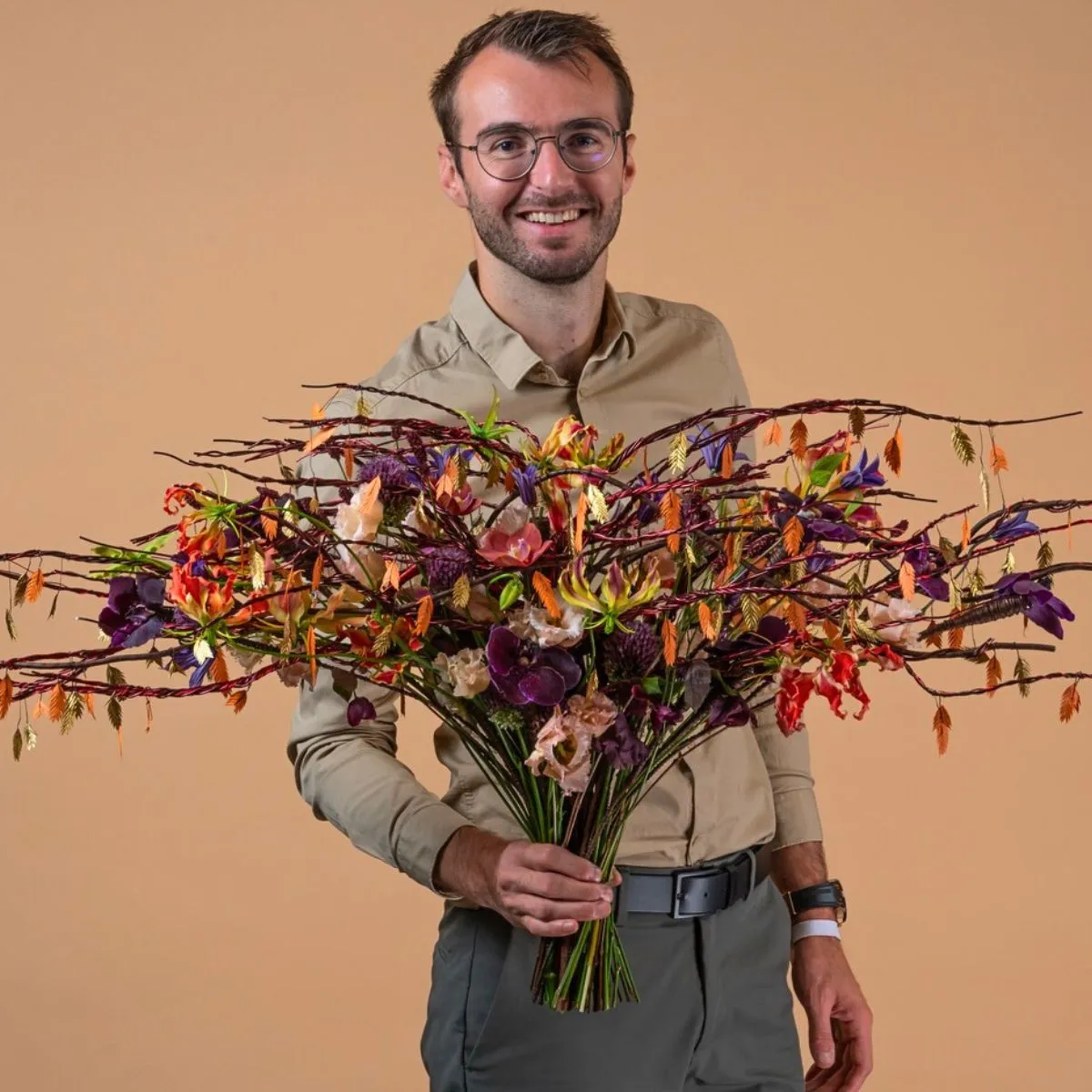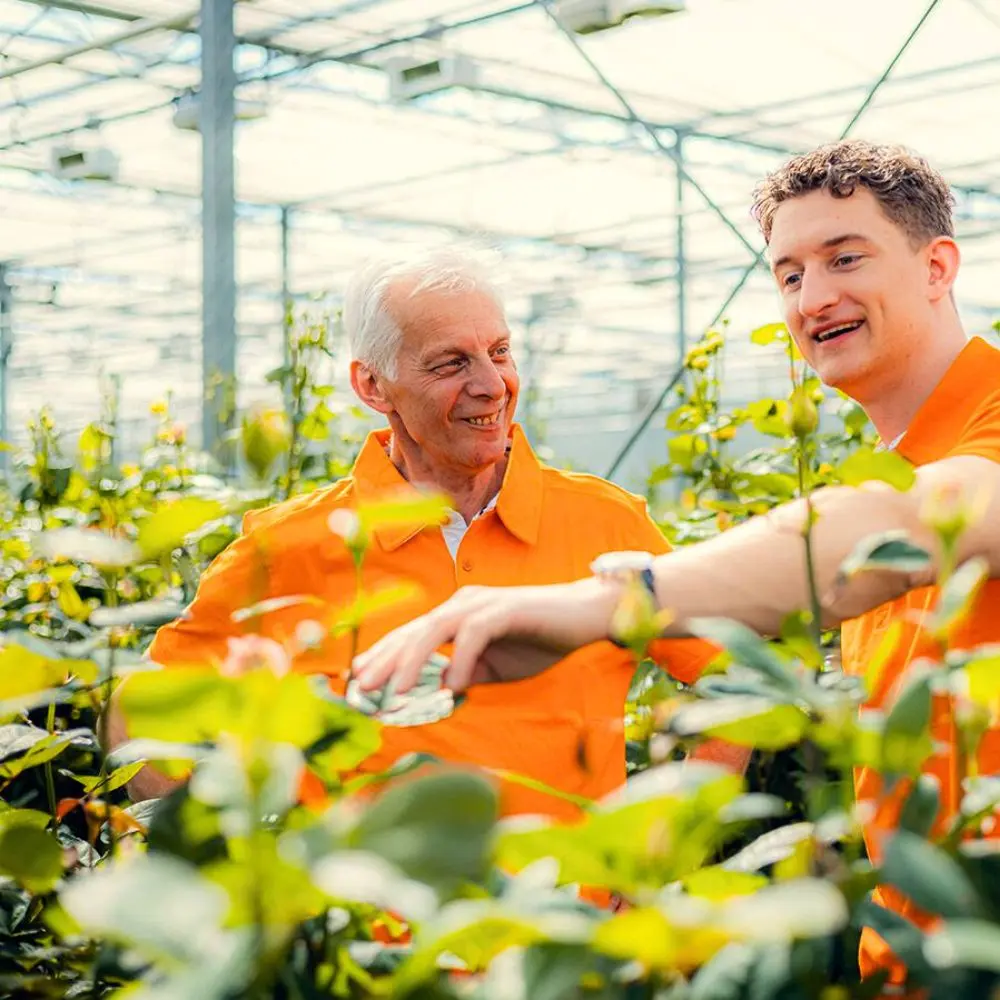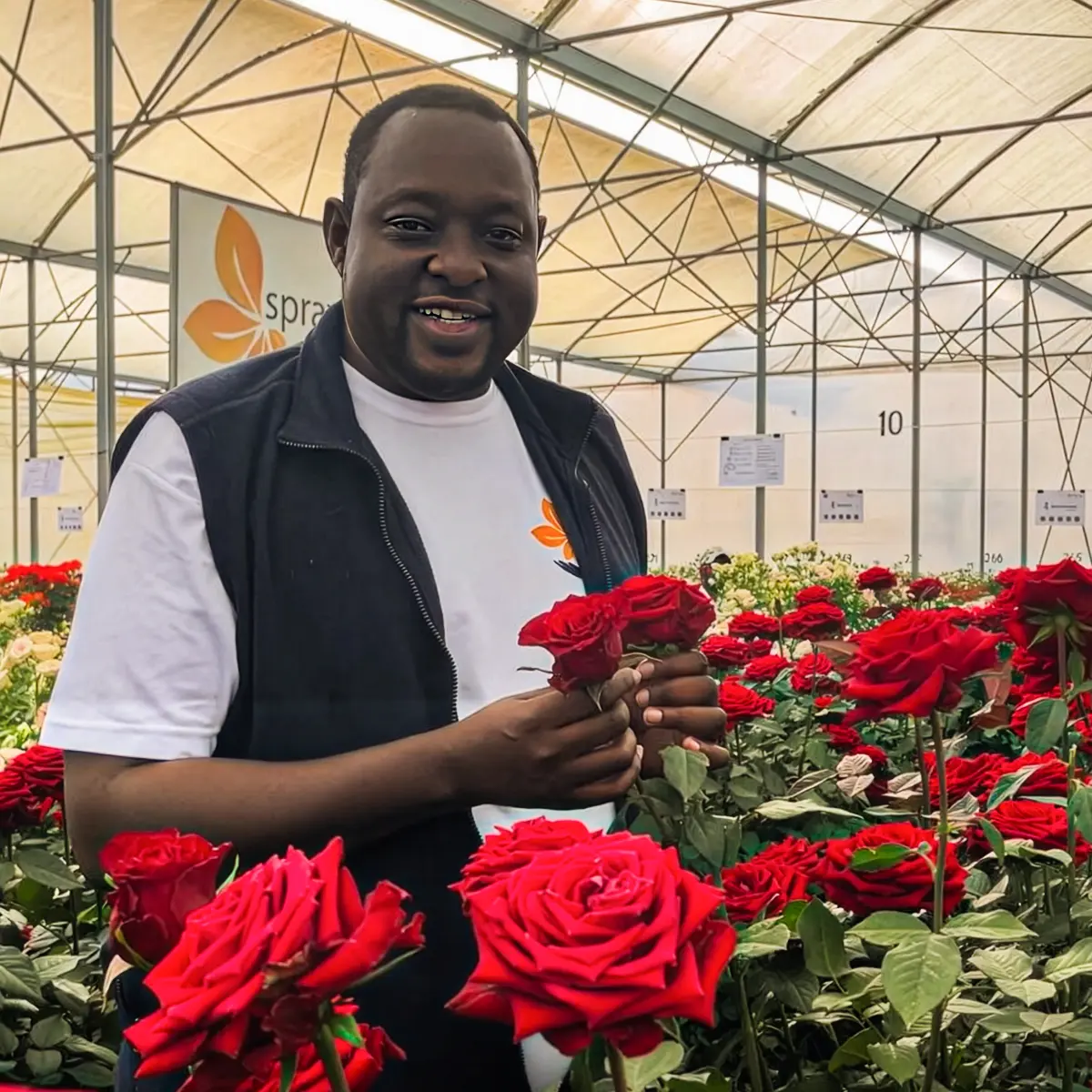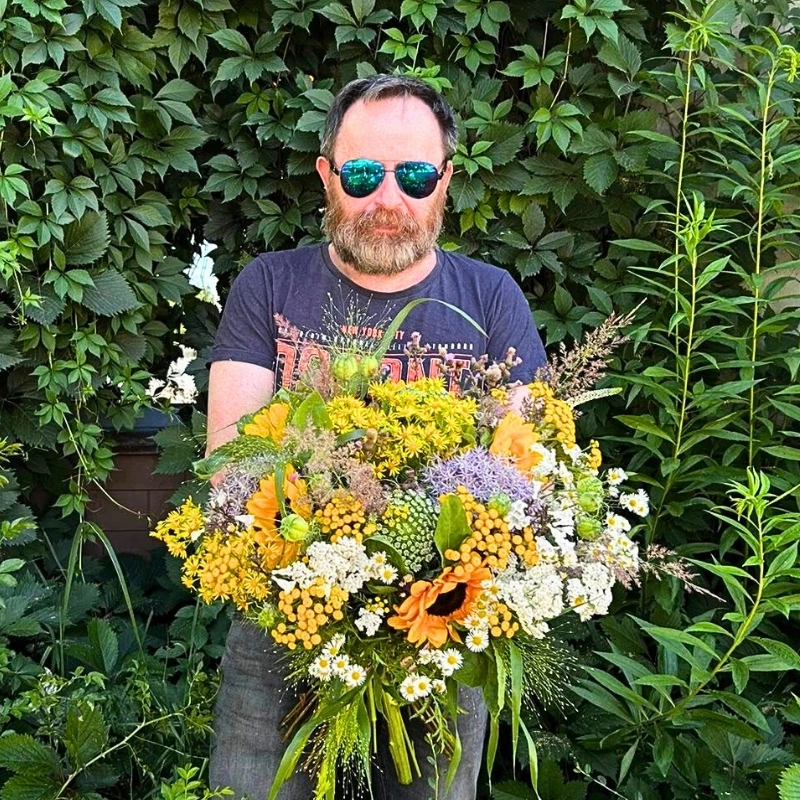In the ever-evolving world of floriculture, few names carry the weight of experience and forward-thinking leadership quite like Mohan Choudhery. As the CEO of Black Tulip Group, Mohan has spent over thirty years immersed in the flower industry's rhythms. His journey is one marked not only by global expansion and strategic growth but also by a grounded respect for people, process, and the planet. On the 10 questions this week, he shares insights into his leadership philosophy and the industry's biggest challenges. Read on to learn more about him.
Question 1
For those who don’t know you, who are you, and what do you do?
"My name is Mohan Choudhery, and I am the CEO of Black Tulip Group in Kenya. With over three decades of experience in the floriculture industry, I have been privileged to work across various segments of the flower value chain—from farm operations to export logistics and international marketing. Today, I oversee a network of farms in Kenya and beyond, producing premium cut flowers and foliage for global markets. My journey has been driven by a passion for agriculture, a deep respect for nature, and a commitment to continuous innovation. I come from a close-knit family, and despite the demands of this industry, staying connected to those roots remains an important part of who I am and how I lead."
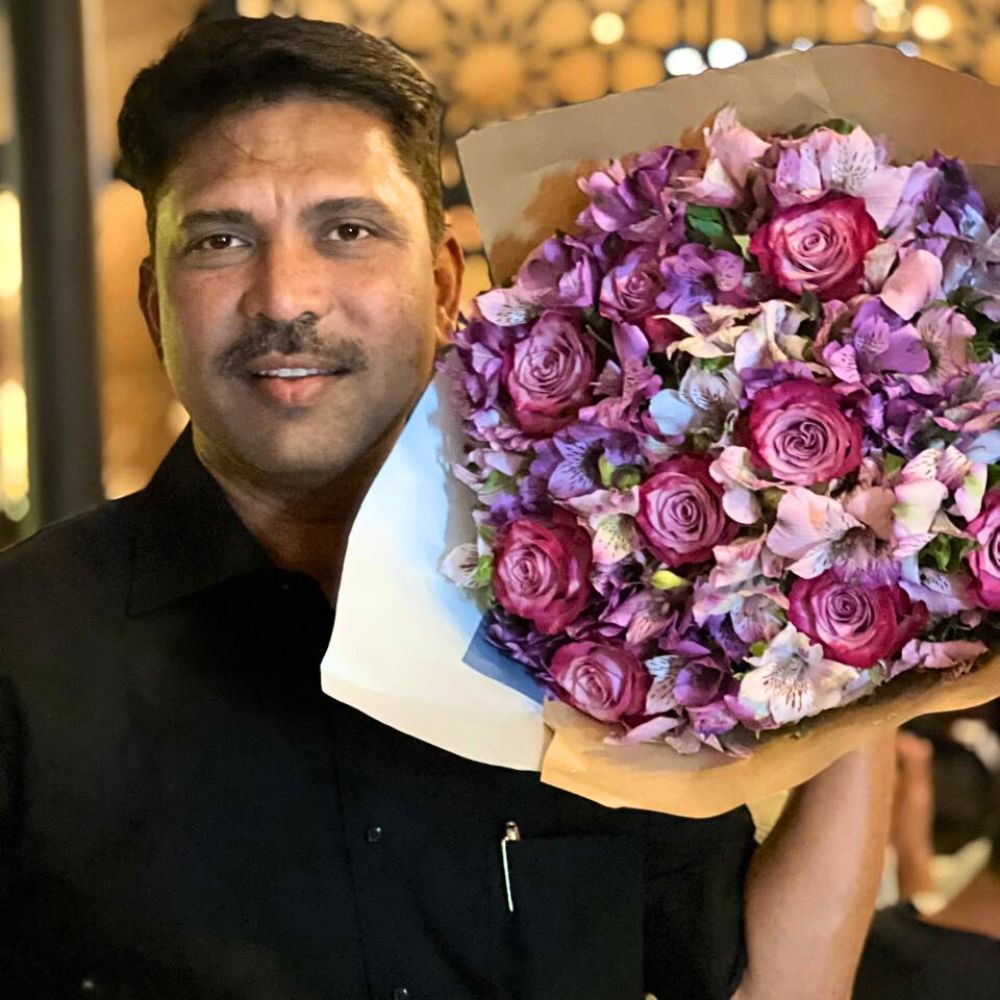
Question 2
What is so special about your job?
"Leading Black Tulip Group allows me to combine strategic management with a deep appreciation for nature's beauty. The floriculture industry is dynamic, requiring adaptability and innovation. Witnessing the transformation of a simple bud into a bloom that brings joy to people worldwide is immensely rewarding. Additionally, our commitment to sustainable practices and community development adds a meaningful dimension to our work."
Question 3
Are there any specific challenges or obstacles you’ve faced at work, and how did you overcome them?
"The first few weeks of the COVID-19 pandemic were a major challenge, as the world came to a halt and uncertainty gripped every industry, including ours. Logistics were disrupted, markets froze, and we had to make quick, difficult decisions to keep operations afloat while protecting our teams. However, the challenges didn't end there. One of the ongoing hurdles has been capacity building within our management teams, ensuring they are agile and skilled enough to respond to rapidly changing market dynamics.
Additionally, our aggressive expansion strategy, which included multiple acquisitions in a relatively short span, demanded significant integration efforts and leadership alignment. Overcoming these requires training, delegation, clear communication, and strengthening our organizational culture to support fast-paced change."
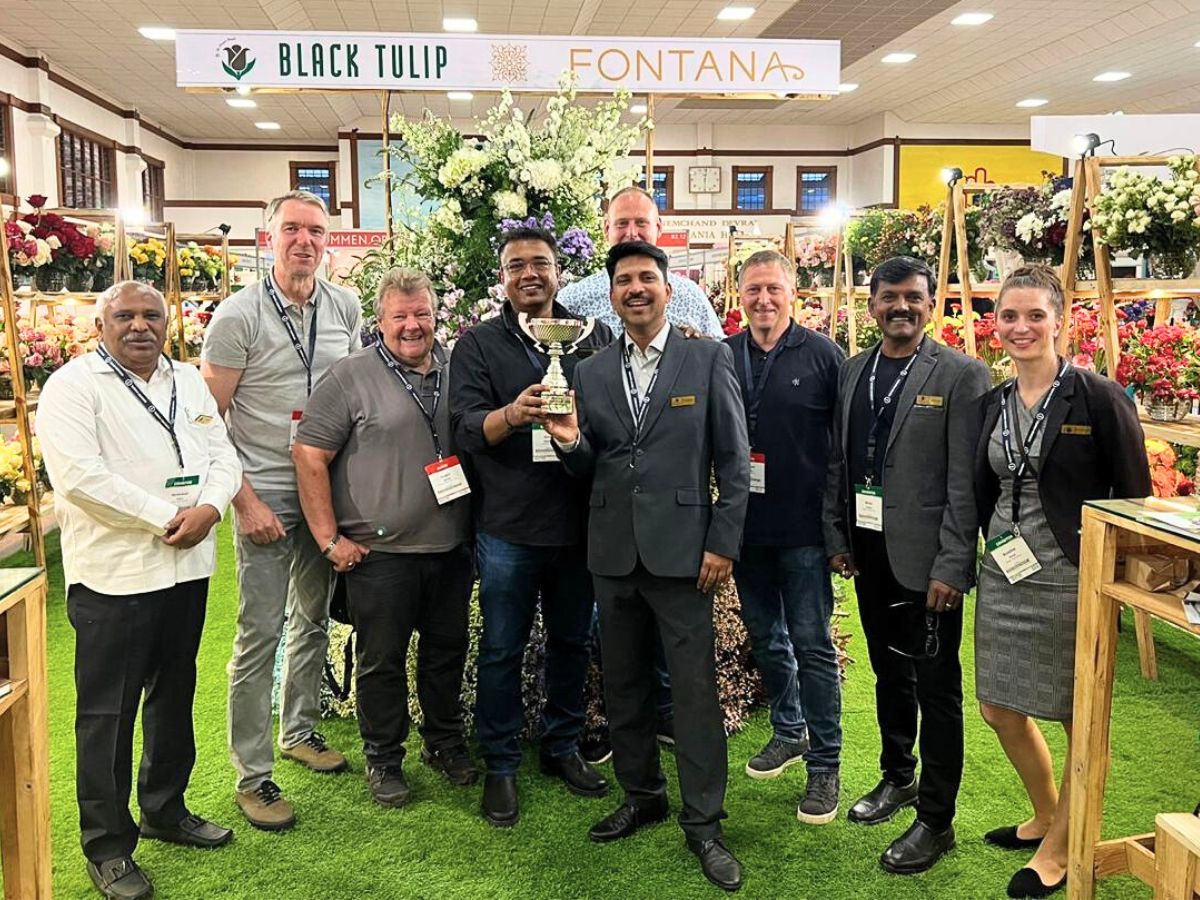
Question 4
What are the threats in the industry, and if so, do you have any solutions for them?
"There are several pressing threats facing the floriculture industry today. One of the most critical is the impact of climate change. Unpredictable weather patterns, increasing temperatures, and water stress directly affect crop planning and consistency in quality. At the same time, the market's expectations around environmental standards are rising fast—buyers want flowers grown with minimal pesticide use and a low carbon footprint. However, the industry still lacks complete, scalable solutions for reducing chemical use without compromising plant health or yield.
Another major concern is the persistent cost of logistics and air freight from Kenya, which puts pressure on margins and competitiveness. To address these challenges, we are investing in integrated pest management, trials with biological controls, and exploring sea freight as a supplementary logistics option. But broader industry-wide collaboration and policy support are needed to build sustainable systems for the long term."
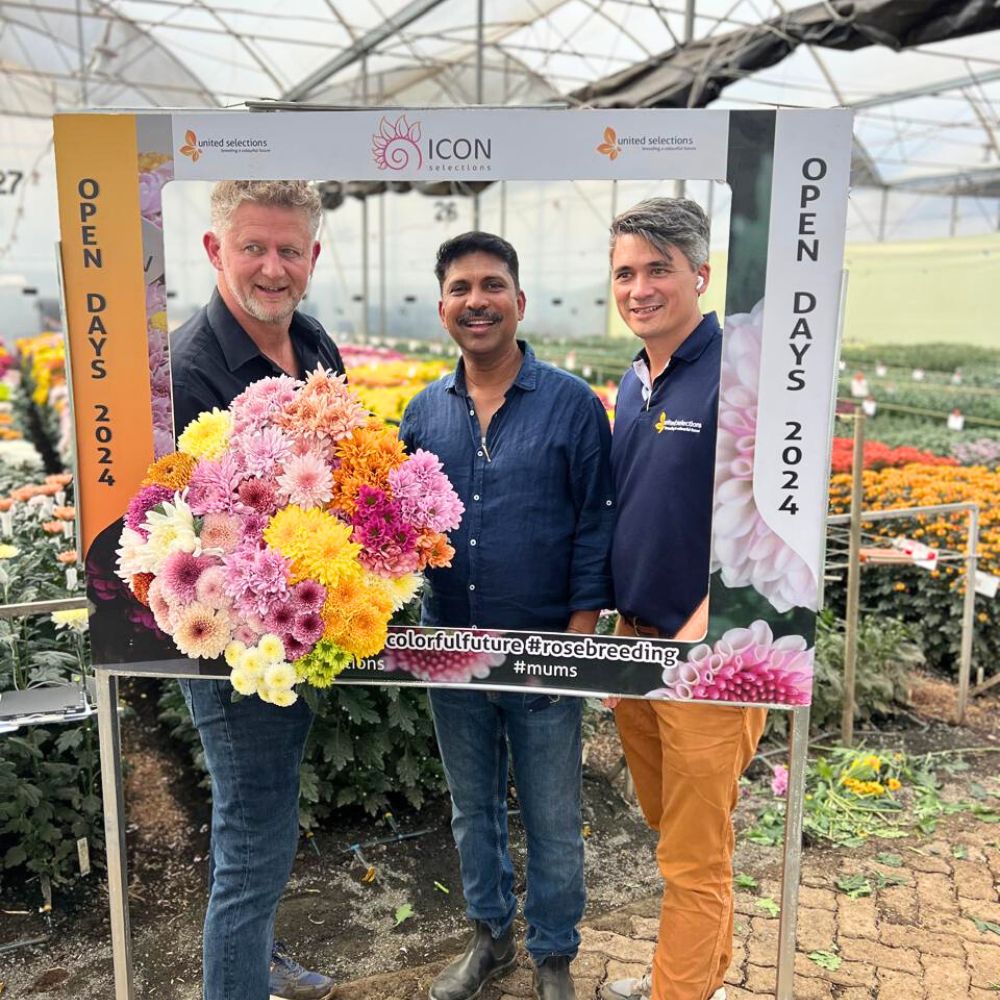
Question 5
How has technology, such as e-commerce platforms or digital marketing, affected your industry? What strategies have you employed to stay competitive?
"At the farm level, we do not directly engage in e-commerce, as our operations are primarily focused on large-scale production and exports. However, our marketing and distribution arms in the Middle East have embraced e-commerce and digital marketing tools quite effectively. Through these platforms, we’ve been able to reach a wider, younger audience—especially consumers who value convenience, visual inspiration, and transparency.
Digital campaigns, targeted content, and online ordering have allowed us to build stronger brand awareness and capture emerging lifestyle trends. While the farms remain focused on quality and volume, our downstream partners are driving innovation in how flowers are sold and experienced in the market. This integrated approach helps us remain competitive across the entire value chain—from greenhouse to end consumer."

Question 6
Who (in or outside the floral industry) is an inspiring example to you? And Why?
"I draw inspiration from the people I meet in my everyday life and work. I truly believe that everyone, regardless of title or background, has something to teach us. Whether it's a farm worker showing resilience under pressure or a young manager bringing fresh ideas to the table, I find value in the positive energy and commitment people bring to their roles. So, rather than naming one individual, I would say I’m inspired by anyone I encounter who shows a genuine zeal to do their job well, take ownership, and uplift others along the way. That spirit of dedication and optimism is what drives me to keep improving myself, too."
Question 7
How do you handle stress or difficult moments in your life?
"I believe stress often stems from negative energy or thoughts, and I make a conscious effort to stay away from both. When faced with difficult situations, I choose to accept them first rather than resist them emotionally. Instead of letting stress take control, I try to focus on identifying and addressing the root cause. That doesn’t mean I have all the answers—but I remind myself of a simple truth: if there’s a solution to a problem, there’s no need to stress; and if there’s no solution, then stress won’t help either. Sometimes, it’s best to give the situation some space and let things settle before reacting. This mindset has helped me stay calm, think clearly, and respond rather than react in challenging moments."
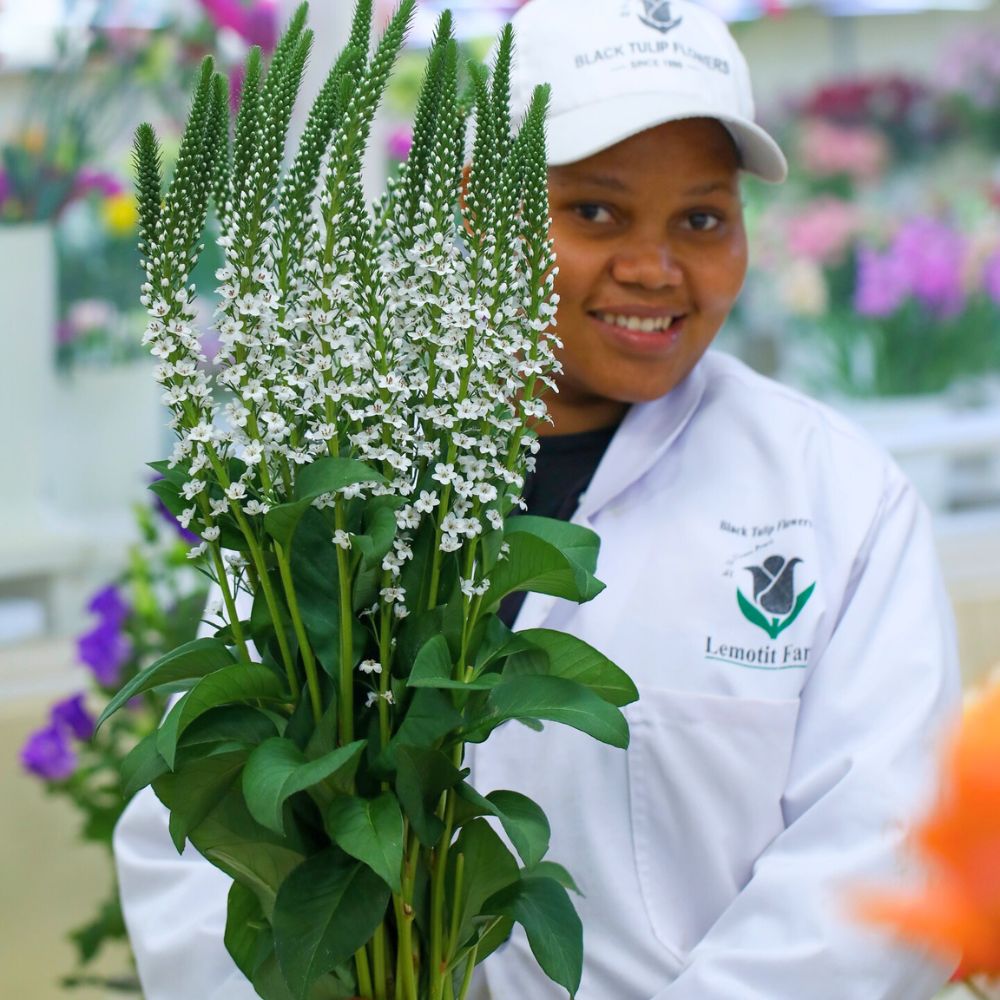
Question 8
What has been the best (floral or non-floral) news for you lately, or of the last year?
"A significant milestone was our acquisition of the James Finlay Kericho flower farm in Kenya. This strategic move expanded our production capacity and reinforced our commitment to the Kenyan floriculture sector. It also opened new opportunities for innovation and growth within our organization."
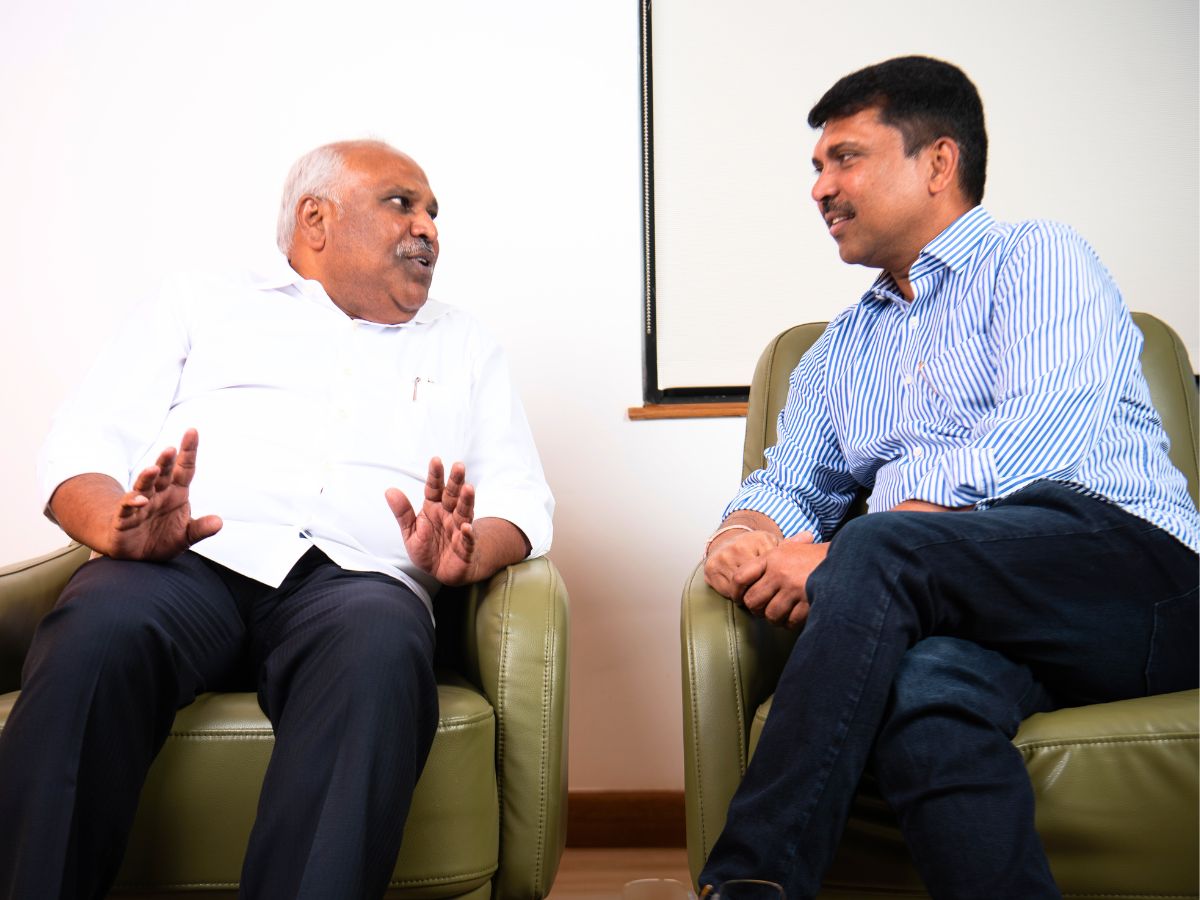
Question 9
Which is your favorite flower/plant, and why is it good for you?
"This is a very difficult question to answer—almost like asking a parent to choose their favorite child! My love is for flowers as a whole, and selecting just one feels limiting. My preference often depends on the occasion, the mood, and even the way the flower is presented. That said, I can’t deny that the rose remains the most universally adored flower, with its timeless beauty, emotional depth, and global appeal. At the same time, the world of flora is vast and full of hidden gems.
Many remarkable flowers are yet to be explored commercially and introduced to consumers. So don’t be surprised if, in the future, my preference is stolen by a lesser-known bloom that captures the imagination. That’s the beauty of this industry—it’s always evolving, and so is my admiration for it."

Question 10
What are you doing this weekend?
"Over the last twenty years, weekends have been my time to unwind and reconnect with my family. My role often demands regular visits to our farms, which leaves little time during the week for socializing or personal downtime. So when the weekend arrives, I cherish the opportunity to be at home. One of my favorite things to do is cook for my boys—it’s something simple, yet deeply fulfilling. Spending time with them and enjoying the quiet moments at home gives me the balance I need to stay energized and focused for the week ahead."
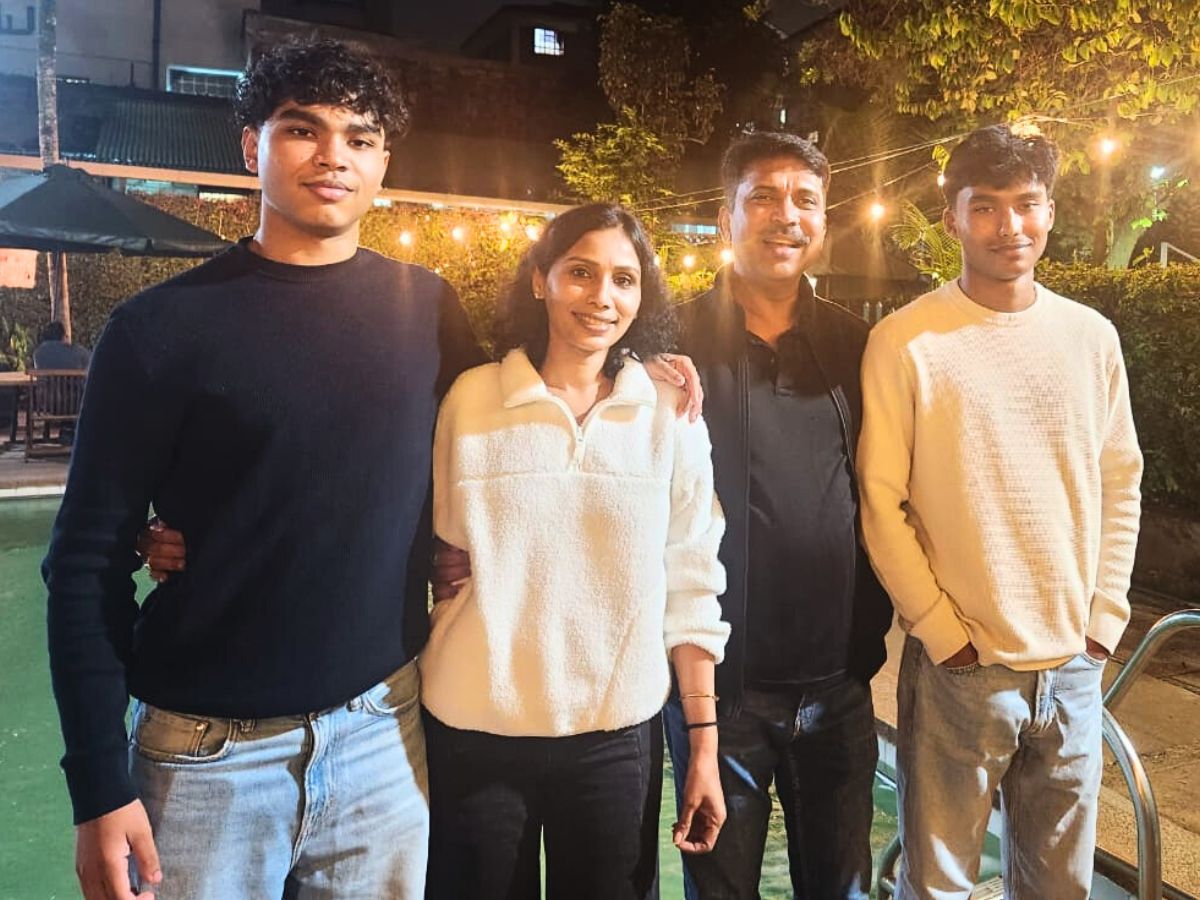
All pictures courtesy of Mohan Choudhery.

